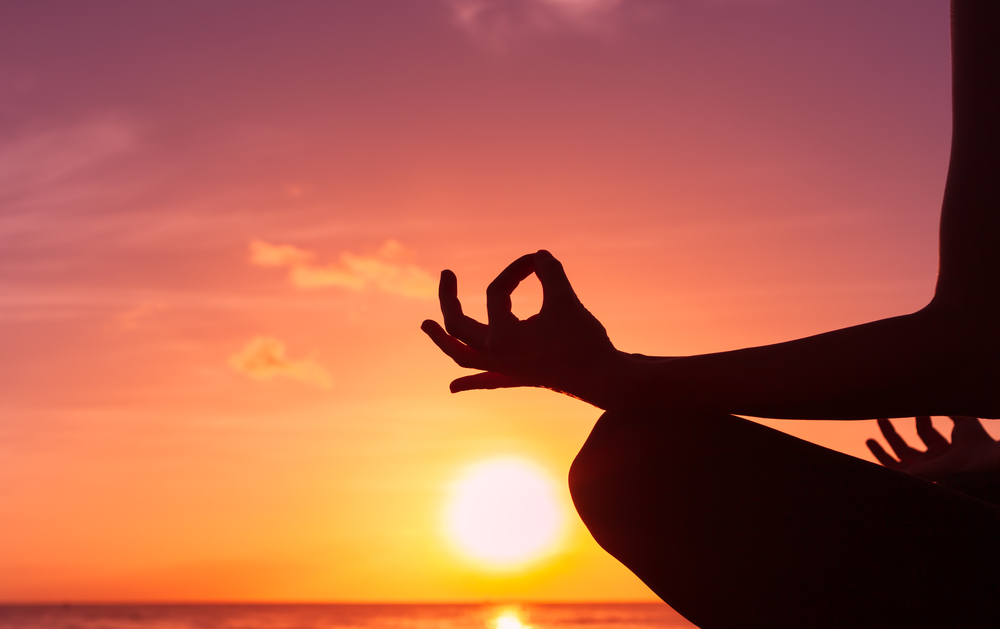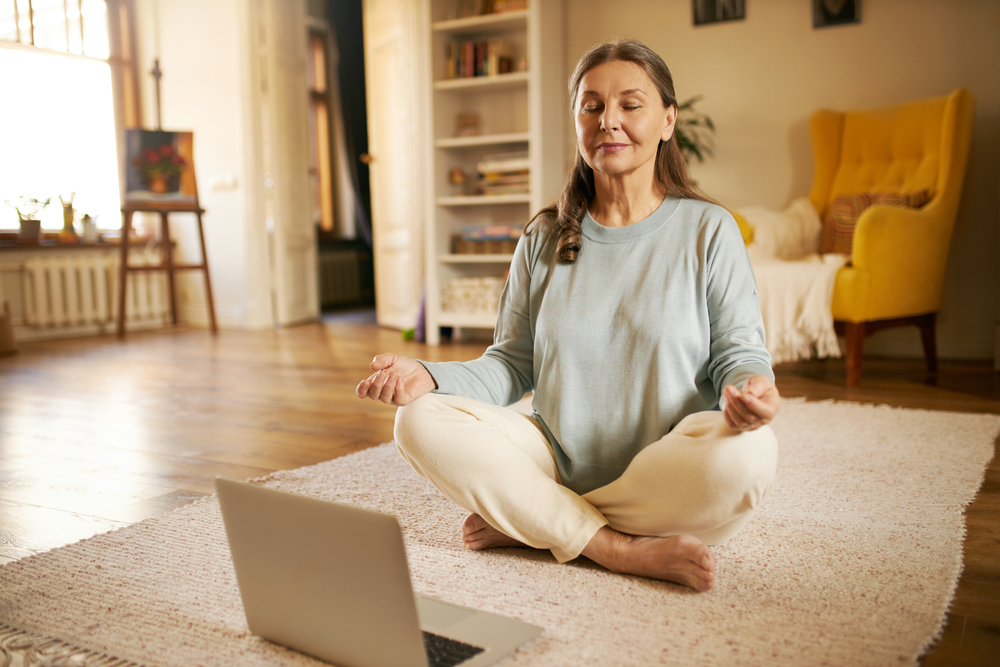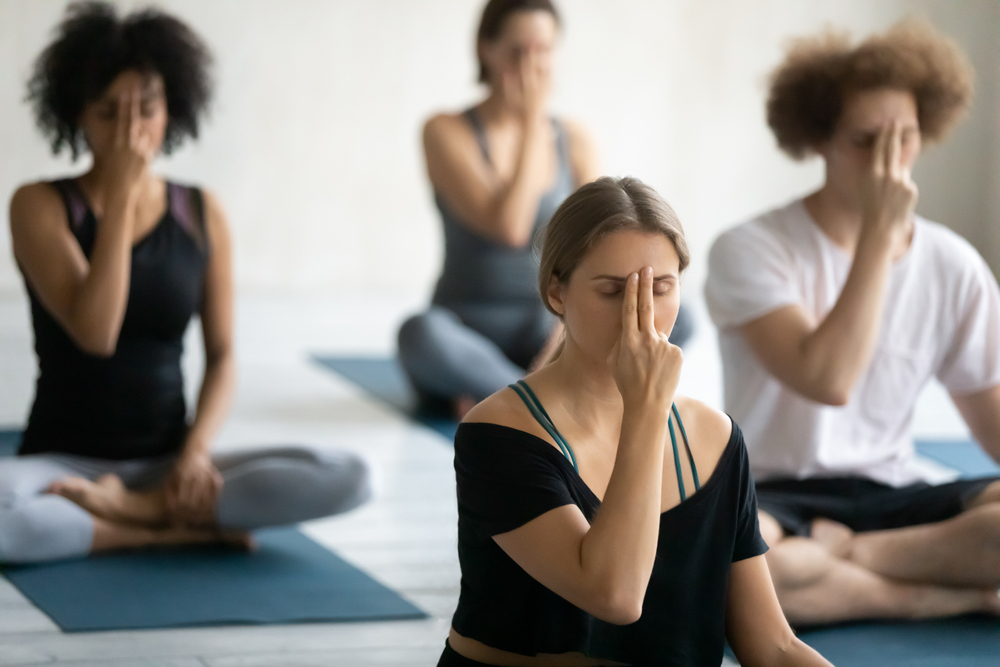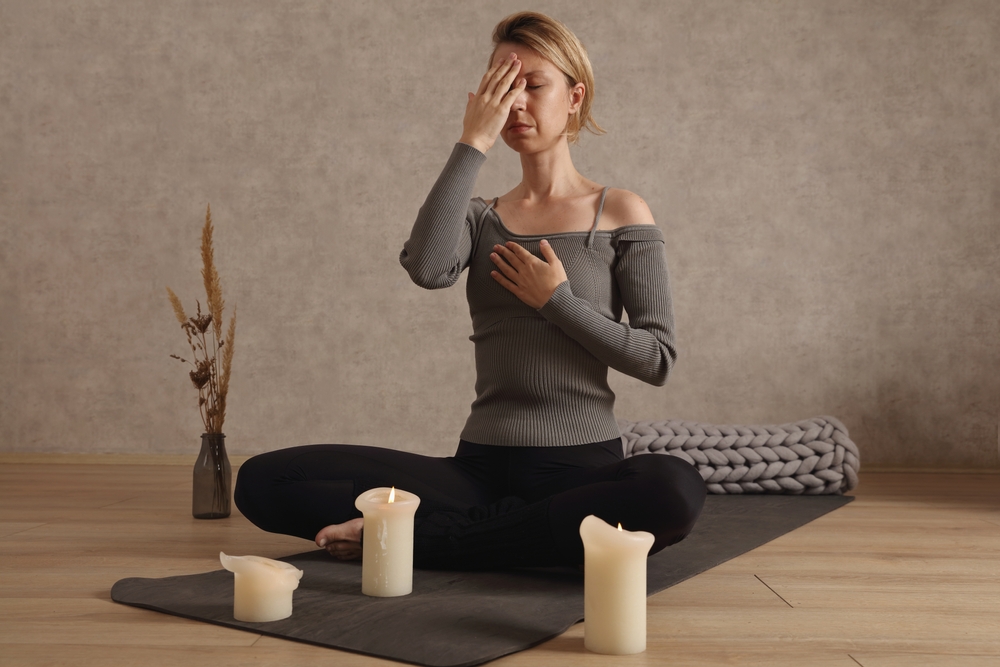DISCLAIMER: Always consult with a healthcare professional before starting any new routines, programs, or nutrition plans to ensure you receive the best medical advice and strategy for your specific individual needs.
Can a yoga retreat help your mental well-being? Yes, it can! As part of your regular yoga practice.
Yoga is widely recognized as a practice and philosophy that combines spiritual, emotional, mental, and physical components to improve overall wellness and quality of life. In addition to the health benefits that yoga brings, like improved muscle strength and metabolism, it has been shown to sharpen the mind, relieve stress, anxiety, and depression, improve body image, and build self-confidence.
Yoga also increases mindfulness which in turn facilitates developing self-awareness, self-esteem, and self-compassion. People who are self-compassionate are more likely to treat themselves with concern, kindness, and care when they face difficult and stressful situations.
As humans, we tend to focus on the physical body, but our mental and emotional states matter. Practicing yoga and attending the occasional yoga retreat not only makes us stronger and healthier but heals the mind and soul. It gives us the tools to resolve traumas, focus on the present moment, and release thoughts and feelings that no longer serve us, enabling us to venture into the path of personal growth.
The Importance of Mental Health in Today’s Busy World

In today’s busy world, there is so much pressure on us to keep up and juggle relationship responsibilities, family, and work commitments. The constant threats to human security due to health-related, economic, social, and environmental challenges also leave us stressed, anxious, and overwhelmed.
Plus, there is so much information and misinformation that constantly bombards us, leading to cognitive stress and mental fatigue. In times of responsibility overload, uncertainty, and information overflow, it can be difficult to relax, shift your focus away from stressors, and reconnect to your own inner calm.
Yet, this is part of what we call self-care and practicing self-care is key to good mental health and well-being.
Things We Can Do to Take Care of Our Mental Health

Because mental health is so important to general well-being, it is essential to prioritize yourself, your mental health, and your own needs. And to take care of our mental health and wellness, a few changes to lifestyle, routine, and daily habits may be required. Some of these include getting more rest, sticking to a sleep schedule, cutting back on screen time, exercising, taking time off, and last but not least, beginning your yoga journey.
How Can Yoga Help Us Build Better Mental Health and Lead a Balanced Healthy Lifestyle?

The ancient philosophy and practice of yoga have long been praised as an antidote to a fast-paced, and stress-ridden life, so let’s look at each of its benefits.
Using Yoga to Manage Stress

Stress has multiple faces and manifestations, like headaches, insomnia, neck and back pain, indigestion, panic attacks, and inability to concentrate.
Yoga can help reduce stress and the effects on health and mental well-being it causes. It combines stress-reducing techniques like exercise, meditation, and breath control which help relax the body and clear the mind.
Exercise, and stretching, in particular, relieve tension in the shoulders, hips, and other problem areas. Breath regulation teaches yogis to breathe deeply and calmly which by itself is a stress reliever.
Meditation centers attention and clears the mind of any thoughts that might be causing stress, resulting in enhanced mental well-being.
Science also confirms that yoga has an effective role in stress management. In fact, even a 10-minute practice of low-intensity yoga has been shown to increase vigor and reduce confusion, fatigue, anger, hostility, and tension.
Yoga not only helps cope with moderate levels of stress but combats and reduces the risk of burnout. While a number of techniques show good results, including biofeedback, qigong, and tai chi, yoga can be especially effective in calming and quieting the mind after prolonged exposure to stress.
Meditation, in particular, empowers us to let go of the things that we no longer need, whether a negative event, tightness, or tension.
Yoga for Anxiety and Depression

All exercise can help improve symptoms of anxiety by increasing oxygen in the brain, boosting the production of endorphins, and reducing the levels of stress hormones like cortisol and adrenaline.
Yet, yoga practice may offer an added benefit by increasing the level of gamma-aminobutyric acid, a chemical messenger that plays a key role in controlling fear and anxiety.
Several studies have shown the positive effect of yoga on anxiety. One study published in the International Journal of Yoga examined the effect of asanas and relaxation techniques on depression and anxiety. Interventions included breathing techniques, static stretching postures, coordination practices, and relaxation. The results show that yoga is not only effective in reducing anxiety and depression but helps improve self-esteem.
Additionally, there is growing research that yoga can be used as a therapeutic intervention for a number of mental health conditions, including post-traumatic stress disorder, schizophrenia, addictions, and eating disorders.
One study on the effect of yoga on PTSD symptoms, for example, shows that practice brings positive changes in measures of stress, anxiety, perceived stress, sleep, and resilience. Perhaps joining a local class or investing time for an annual yoga retreat is worth considering.
Boosts Brain Power

Practicing meditation results in increases in gray matter concentration in areas of the brain involved in perspective-taking, emotional regulation, memory processes, and learning.
A study from Psychiatric Research reveals that meditation contributes to increased gray matter which is an enduring change and results in improved cognitive functioning. There is also a growing academic consensus that yoga benefits a range of cognitive functions such as planning, processing, attention, and decision-making.
Builds Self-Confidence

Yoga practice can help build self-confidence and self-esteem.
A study published in Frontiers of Psychology confirms the positive effect of yoga on our perception of personal control and power. The study looked at the effect of constrictive and expansive postures (power poses) and standing poses with a covered or open body front. The results suggest that practicing standing poses results in an improved sense of empowerment and self-esteem, regardless of the practitioner’s self-view.
Enables Self-Compassion and Self-Care

Yoga is known to increase mindfulness which enables us to observe our emotions and experiences without being judgmental or overly critical. Self-acceptance without rumination enables self-love and self-compassion when things go wrong. It makes it less likely to become overwhelmed with self-directed blame, shame, guilt, and other destructive feelings.
When people are self-compassionate, they are able to identify and observe their negative emotions and let them take their own course. Treating oneself kindly can take different forms, like engaging in self-talk that is forgiving, kind, and encouraging or taking time off to relax, rest, and recharge.
Mindfulness also enables us to realize that our own experiences and emotions, whether feeling disappointed, frustrated, or sad, are part of the universal human experience that transcends place, time, and culture.
When people feel devalued or humiliated, when they face criticism or contend or experience rejection or exclusion, they tend to believe their experience is unique and very different. In reality, all experiences are universal and part of life and humanity, and being mindful helps us realize all this.
Knowing that everyone faces challenges and hardships improves our capacity to cope with negative events. Yoga is especially helpful in aiding us to get together and realize that we all share similar struggles, and fears and can find common solutions to each issue. Group yoga classes and yoga retreats are places where such cooperation can take place.
Improves Interpersonal Relationships

There is growing evidence that the state of mindfulness that yoga creates is associated with positive relationship outcomes. Mindfulness enables practitioners to become more attuned to their own emotions by focusing on the stories and sensations moving through them.
The focus shifts to one’s own sensations, needs, fears, and desires and communicating them honestly to others, instead of reacting in anger, contempt, defensiveness, blame, and criticism. In this sense, practicing yoga promotes meaningful relationships through self-improvement.
Wrapping Up

Rapidly emerging as a discipline for promoting personal well-being, yoga helps improve intellectual, mental, emotional, and spiritual health. It has been shown to be effective in the treatment of depression, stress, and anxiety, increasing feelings of relaxation and calmness, improving self-esteem, body image, and interpersonal relationships, and cultivating positive emotions and an optimistic outlook on life.
While modern medicine has the ability to diagnose, alleviate, and treat a wide range of psychological disorders and diseases, it can be argued that yoga offers a holistic approach to mental health and general wellness.
Practicing yoga leads to improved body awareness and emotional clarity and peace of mind and heart. It leads to changes in mindset and perspective and helps us connect with the moment and live in the now without worrying about the future or dragging the past along.
So, don’t hesitate to give the practice a try, and why not even go on a transformative yoga retreat?
DISCLAIMER: Always consult with a healthcare professional before starting any new routines, programs, or nutrition plans to ensure you receive the best medical advice and strategy for your specific individual needs.


 By Team THOR
By Team THOR
